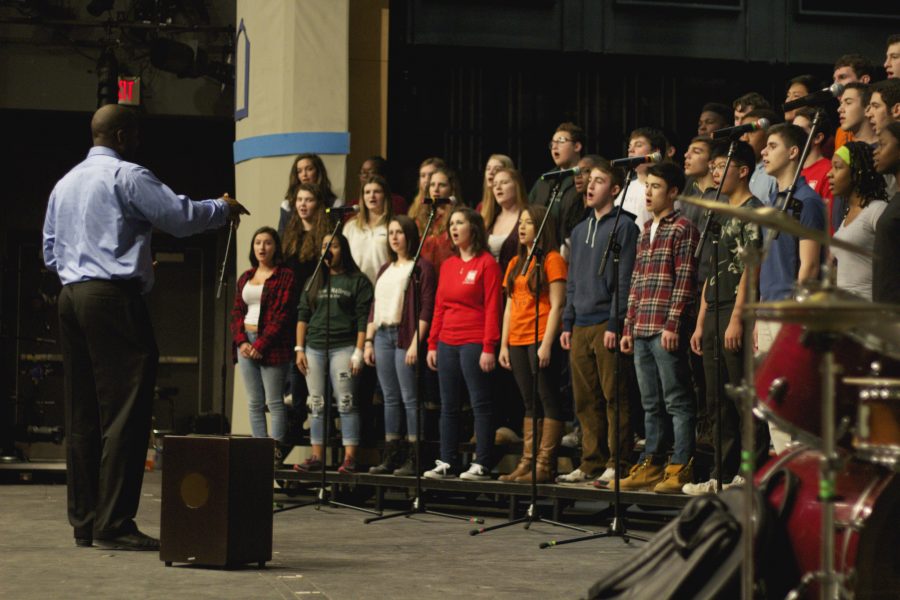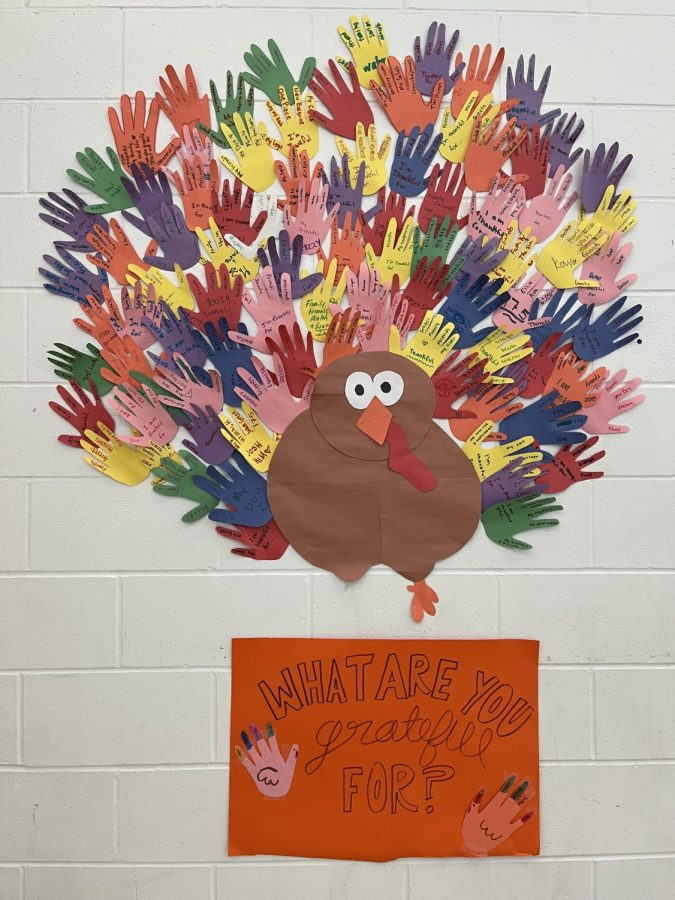B-block
by Maya Abou-Rizk
A panel of teachers spoke about their experiences at this school and discussed questions regarding race during B-block Wednesday as part of Black Culture Day, organized by the Black Leadership Advisory Club (BLAC).
Senior Asya Grozdanova introduced panelists Metco counselor and co-director of Dover Legacy Scholars Lisa Reed, music teacher Sheldon Reed, chemistry teacher Arielle Miles, anatomy and biology teacher Jodie Cohen, and history teacher Isong Ibokette.
The panelists’ first discussed their racial identity. For example, Ibokette explain that he is Nigerian-African-American, but prefers identifying as African-American in order to feel less disconnected from the communities around him.
Next, the panelists were asked whether they have ever felt ashamed of their race. Cohen explained that because she did not “look” black, she felt more ashamed that she did not accentuate that aspect of herself. “I am more ashamed of not owning my race rather than actually being black,” she said.
Lisa Reed shared a very different story. “When I was 4 years old, I came home and asked my mom if I could be white so I could have long pretty hair.”
The panelists were also asked if they felt that they needed to fit a certain criteria to be successful.
Ibokette explained that because a person is black he or she may not always be treated the same as others. “You need to work a lot harder because of who you are but that doesn’t mean comprising who you are,” he said.
The panelists were then asked if there are other things that they are aware of that other people may not be, being of a different race.
Miles explained the importance of acknowledging differences. “It is not right to say you are color blind. It is important to see the difference and accept them as they are,” she said.
The panel was then opened for questions. Senior Tommy Mobley asked, “Do you think racism should have the negative connotation that it has? Or is it a way to “see” the differences?”
Sheldon Reed replied by stating his definition of racist. He said, “Racism is prejudice and the access of systems to power. This means that resources and access to resources are being run by white males, so the people that make the decisions are the white males. Therefore, most of us are racist whether we like it or not.”
F-block
by Adam Rabinowitz
Jubilee Singers performed songs related to the African Diaspora as part of Black Culture Awareness Day F-block yesterday in order to teach the audience about
Jubilee performed various pieces, ranging from ones in English with an African twist to songs in Zulu and other languages, such as the Xhosa version of “God Bless Africa.”
Before starting the performance, Jubilee director Sheldon Reid explained that this song is considered a “national anthem in South Africa,” he said.
Jubilee also performed “The Star-Spangled Banner.” Senior Jelani Asim criticized the song’s meaning in a speech. He cited the words “O’er the land of the free and the home of the brave,” mentioning that the country is not there yet. “Are we free yet? Are we there yet? No, but we are here, and we are trying to make our voices heard,” he said.
Next, the group performed “I Want to be Ready,” with a solo by senior Ari Seckler.
Jubilee’s next song was included a solo by senior Jonathan Gomolka, with the Jubilee’s musical group playing on its instruments.
Senior Lauren Benson played the piano, senior Alex Klavens played bass guitar, junior Paul Goldfinger played drums, junior Nate Hollenberg played the bass guitar, junior Marchaina Roscoe played the electric guitar, and junior Kevin Zhao played the piano.
G-block
by Jacob Sims Speyer
Author Jabari Asim spoke about the use of the n word during G-block in the auditorium as part of Black Culture Awareness day Wednesday.
Asim, a North parent who has written multiple books and is editor-in-chief of the Crisis Magazine, highlighted his most recent book, The N Word: Who Can Say It, Who Shouldn’t, and Why. Asim said that he writes because it is important “not only what the stories say, but who gets to tell them.”
The speech started with discussing the history of the n word. Asim mentioned how the n word has always been used to undermine blacks and defend discrimination.
Asim proceeded to discuss controversial issues regarding the n word today, including if African Americans are allowed to say it, while others are not. He personally disagreed because of the harsh connotation and true meaning of the word, but mentioned the decision is a matter of opinion.
He also debunked the myth that pop culture was responsible for a rise in the use of the n word. Asim described a situation in which the word appeared frequently in older music as well as World War-era household products.
Despite his disliking of the word, Asim mentioned that there are instances in which it should be used, which included art, literature, and scholarly studies. He even used the word a single time in his children’s book to convey the usage of racist vocabulary. “History would be incomplete if [I] didn’t use the word that was used,” he mentioned.
Lastly, Asim mentioned the importance of recognizing how the word was used in the past. “If we ignore history, we are going to pay,” he said.
Black Culture Day: Presenters highlight cultural nuances
February 26, 2015
0
Tags:
Donate to The Newtonite
More to Discover













































